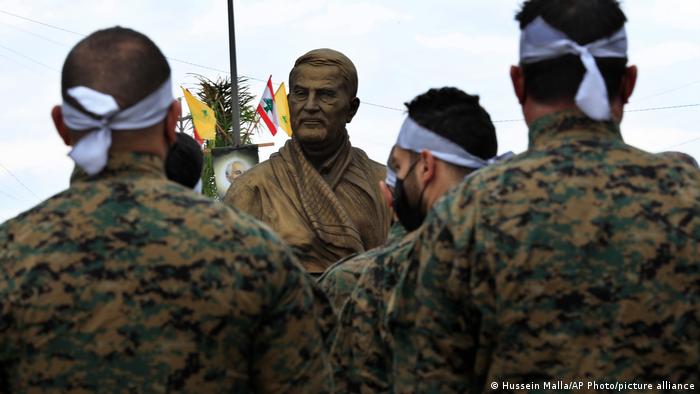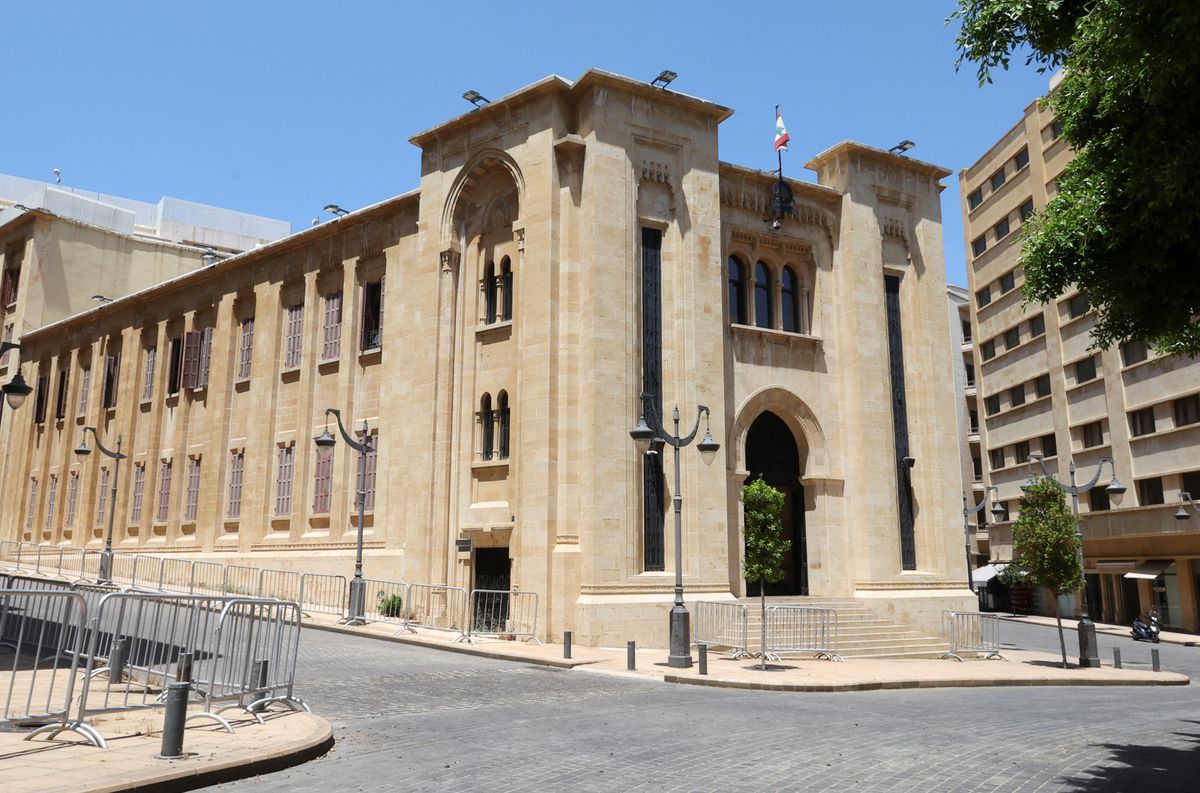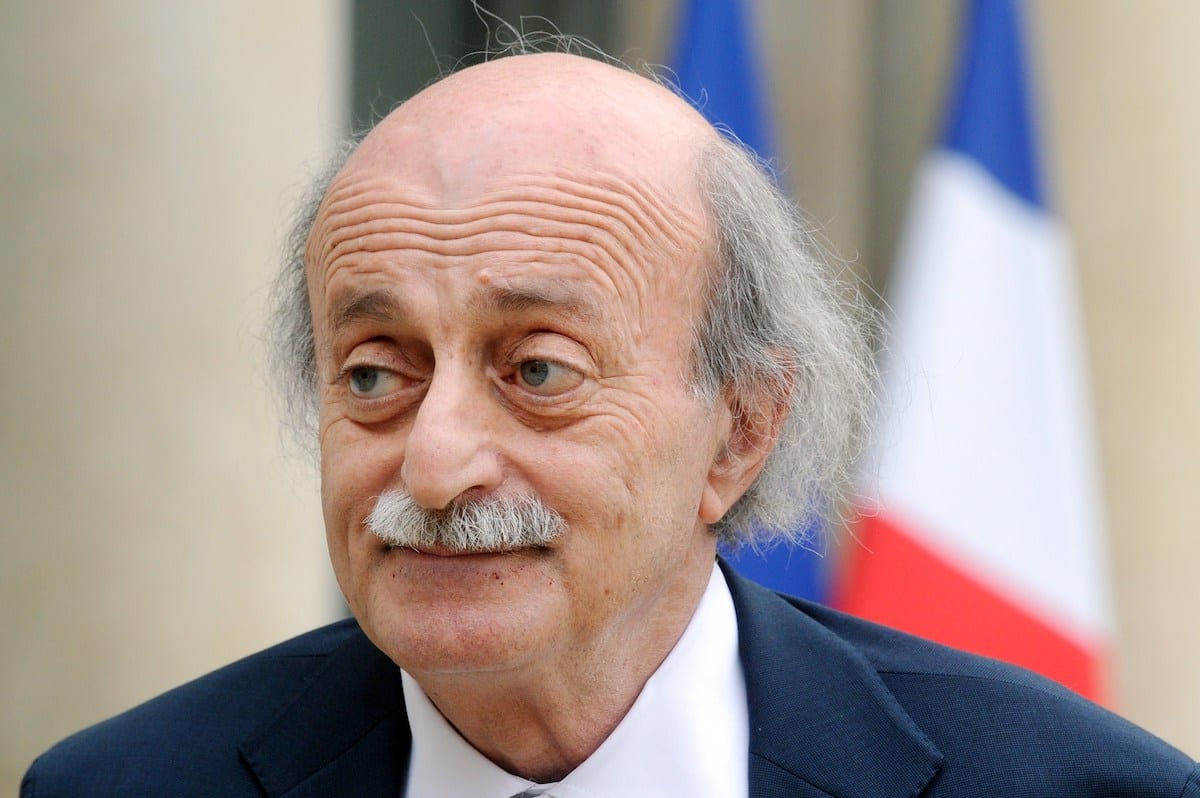
For many in Lebanon, the events constituted a blatant disregard for state authority and international law.
by Adnan Nasser Follow @Adnansoutlook29 on Twitter -- In the days leading up to May 25, the twenty-third anniversary of Israel’s withdrawal from south Lebanon, Hezbollah engaged in a series of highly-visible wargames. The demonstration of force included hundreds of fighters with live ammunition and sophisticated weaponry typically used by national armies. Except it was not the Lebanese Armed Forces that carried out the drills but a mere political party with an armed wing. For many in Lebanon, the events constituted a blatant disregard for state authority and international law. The question of what to do about Hezbollah’s weapons is consistently being put on the back burner out of fear of internal unrest. Hezbollah claims it needs its weapons to defend Lebanon from Israel. Yet others say this is nonsense and that the group wants to keep its arms to maintain its impunity from state rule.
History Strategy Game
This debate has gone on for decades and, indeed, it is nowhere near being resolved. Supporters of Hezbollah cite Israel’s eviction in 2000 as a sign of the Shia group’s justification to keep its guns. One person from the south told The National Interest, “I don’t remember the Lebanese army fighting Israel. Only Hezbollah.” Others remember Hezbollah’s action on May 7, 2008, when the group seized half of Beirut in defiance of the government’s attempt to subdue its telecommunication network, and point to it as an example of why the group cannot be trusted.
Domestic response to Hezbollah’s actions
The politicians and members of various political parties that oppose Hezbollah and advocate for state sovereignty have denounced the military drills. The caretaker prime minister, Najib Mikati, acknowledged that these maneuvers challenge the government’s role in defending Lebanon, but followed up by stating that the situation is too complicated for the state to act alone. The Lebanese government “rejects any act that infringes on the state’s authority and sovereignty, but the issue of Hezbollah’s arms requires a comprehensive national consensus,” Mikati said.
By Saundra Latham, Editor at LinkedIn News — HBO Max is now “Max,” and whether that’s a savvy marketing move or the …

By Najia Houssari -- arabnews.com -- BEIRUT: Thirty-one reformist, independent, and opposition MPs expressed their concern on Friday about a military maneuver carried out by Hezbollah in the town of Aaramta in southern Lebanon. The MPs said they believe such a maneuver, which they described as typical of the militia’s longstanding practices, “contradicts the concept of the state.” In a statement, the MPs argued that Hezbollah’s maneuver challenged the majority of Lebanese citizens and went against the Arab Summit declaration in Jeddah. They perceived it as an assertion by Hezbollah that its sovereignty surpasses that of the state, implying that no decision in Lebanon can contradict the party’s will or that of the regional axis it aligns with.
The MPs said the lives and future of the Lebanese people were being “held hostage” by Hezbollah’s project. But the MPs also stressed that Hezbollah cannot impose its political, military, security, and economic agendas on the Lebanese state, regardless of how much it undermines the foundations of the state’s existence. They argued that Lebanon, as a state, could not coexist with Hezbollah as a fiefdom. They said it was an “urgent duty” to resolve the issue by ending Hezbollah’s armed status through the implementation of the Taif Agreement and the constitution derived from it, which called for the dissolution of militias. The MPs emphasized the need to adhere to UN resolutions 1559 and 1701 — putting an end to Hezbollah’s military and security interventions abroad — and to refrain from interfering in the internal affairs of Arab countries. Doing so would help restore Lebanon’s historical relations with the international and Arab communities, they said. Additionally, the MPs called for the dismantling of Hezbollah’s parallel economy, which they claimed had been built through smuggling via legal and illegal crossings, promoting tax evasion, and facilitating corruption. They demanded that Hezbollah engage in political activities like other Lebanese parties, operating within the framework of the constitution, Lebanese laws, democracy, and respect for public freedoms.
Hezbollah participates in the Lebanese parliament through a bloc consisting of 13 MPs, and it has allies in parliament, most notably the bloc of speaker Nabih Berri, which comprises 15 MPs. In a televised speech, Hezbollah chief Hassan Nasrallah reiterated his commitment to the “equation of the army, the people, and the resistance,” stating that he considered it a “crucial source” of strength for Lebanon. Nasrallah responded to threats made by Israeli Prime Minister Benjamin Netanyahu following Hezbollah’s military maneuver, saying: “It is not you who threatens us with a major war, rather we are the ones threatening you.”

By Najia Houssari - arabnews.com -- BEIRUT: Lebanese politician Walid Jumblatt announced his sudden resignation as the head of the Progressive Socialist Party on Thursday. A prominent Druze leader, Jumblatt led a party that has held a pivotal position in Lebanese political life since its establishment in 1949. In his announcement, Jumblatt called for a general election conference on June 25, per the provisions of the party's constitution and internal regulations. He entrusted the general secretariat with completing the necessary preparations, including issuing relevant notifications regarding nomination requests and withdrawal deadlines, and all conditions related to the electoral process. Additionally, the secretariat will prepare lists of conference members and send out invitations. Jumblatt's decision is rare as leaders typically do not voluntarily step down from their positions. Most leaders who participated in the Lebanese civil war continued to hold political positions they assumed after the war. Jumblatt inherited the party’s leadership from his father, Kamal Jumblatt, who was assassinated on March 16, 1977. He led the party during the darkest stages of the Lebanese civil war.
Currently, the Progressive Socialist Party is represented in the Lebanese parliament by the Democratic Gathering bloc, headed by Jumblatt's son, MP Taymour Jumblatt, and consisting of nine MPs. Taymour will likely assume the presidency of the Progressive Socialist Party through elections. In 2017, on the commemoration of Kamal Jumblatt, the founder of the Progressive Socialist Party, Walid Jumblatt took the symbolic step of handing over the leadership mantle to his son by donning the abaya (traditional garment) for him. This was a social, followed by a political gesture signifying the gradual transfer of the Druze leadership to his son in 2022. In recent weeks, there have been reports of differences of opinion between Walid Jumblatt and his son Taymour regarding the approach to electing the next president.
Khazen History


Historical Feature:
Churches and Monasteries of the Khazen family

St. Anthony of Padua Church in Ballouneh
Mar Abda Church in Bakaatit Kanaan
Saint Michael Church in Bkaatouta
Saint Therese Church in Qolayaat
Saint Simeon Stylites (مار سمعان العامودي) Church In Ajaltoun
Virgin Mary Church (سيدة المعونات) in Sheilé
Assumption of Mary Church in Ballouneh
1 - The sword of the Maronite Prince
2 - LES KHAZEN CONSULS DE FRANCE
3 - LES MARONITES & LES KHAZEN
4 - LES MAAN & LES KHAZEN
5 - ORIGINE DE LA FAMILLE
Population Movements to Keserwan - The Khazens and The Maans
ما جاء عن الثورة في المقاطعة الكسروانية
ثورة أهالي كسروان على المشايخ الخوازنة وأسبابها
Origins of the "Prince of Maronite" Title
Growing diversity: the Khazin sheiks and the clergy in the first decades of the 18th century
Historical Members:
Barbar Beik El Khazen [English]
Patriach Toubia Kaiss El Khazen(Biography & Life Part1 Part2) (Arabic)
Patriach Youssef Dargham El Khazen (Cont'd)
Cheikh Bishara Jafal El Khazen
Patriarch Youssef Raji El Khazen
The Martyrs Cheikh Philippe & Cheikh Farid El Khazen
Cheikh Nawfal El Khazen (Consul De France)
Cheikh Hossun El Khazen (Consul De France)
Cheikh Abou-Nawfal El Khazen (Consul De France)
Cheikh Francis Abee Nader & his son Yousef
Cheikh Abou-Kanso El Khazen (Consul De France)
Cheikh Abou Nader El Khazen
Cheikh Chafic El Khazen
Cheikh Keserwan El Khazen
Cheikh Serhal El Khazen [English]
Cheikh Rafiq El Khazen [English]
Cheikh Hanna El Khazen
Cheikha Arzi El Khazen
Marie El Khazen